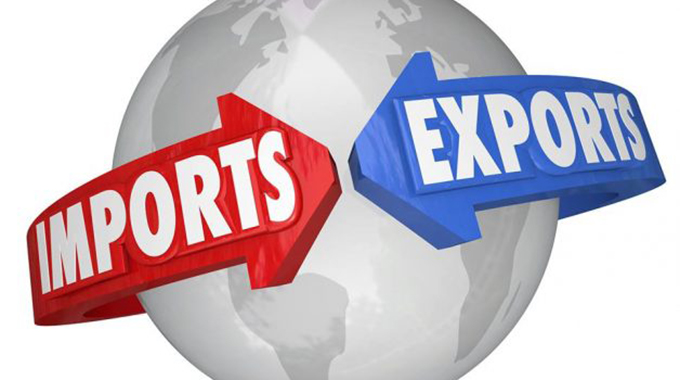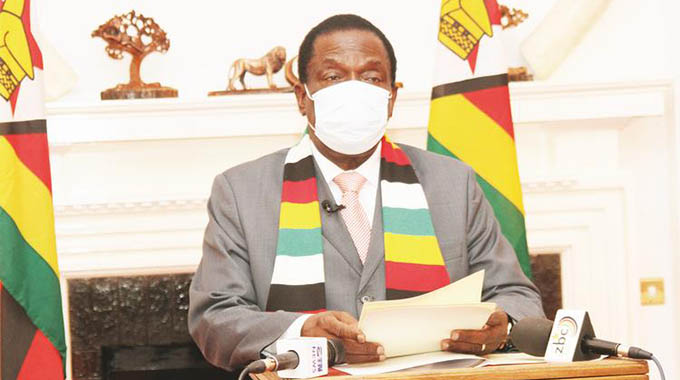Editorial Comment: Increased monthly exports boost for production

The continued major recovery in exports after a dip in the first four months of the Covid-19 pandemic to top US$500 million in November last year, and almost US$529 million was the highest monthly total in the Second Republic, shows that critical productive sectors of the economy are moving forward despite challenges.
Partly this November figure is the seasonal boost from tobacco. While farmers deliver much earlier, tobacco has to be processed and orders made up, packed and shipped, so November traditionally tends to see the largest segment of payments for our largest single export, although external customers are paying over several months.
But the export recovery and then growth also means that the mining sector has been busy getting the rest of our major exports — nickel, diamonds, platinum ferrochrome and gold — dug up and shipped after the initial Covid-19 pause.
While tobacco has seasonal spikes, from the delivery by farmers to the shipments of the partly processed product, minerals tend to take the base load for export earnings and Zimbabwe tends to rely on export shipments month after month throughout the year.
Growth in these exports is largely reliant on miners digging more metal out of the ground, although fluctuations in world prices can create modest dips and pay out bonuses and this explains the stress the Government is placing on getting investment, and so production, raised so fast in the mining sector
The fact that exports, even in a drought year when we look at tobacco and in a global Covid-19 downturn when we look at minerals, can keep rising means that the stability we have won through a lot of hard work, and some suffering, is soundly based.
The auctions, which now supply the net needs of the productive sectors, are easily covered by the export earnings, even though what amounts to our manufacturers, the main buyers at the auctions, are pushing up their requirements to over US$30 million a week and could well be reaching US$150 million a month as they continue to expand production.
Besides these high priority imports, and those are the ones funded on the auction since consumer goods are just not on the lists, there are other essential imports.
For a start, the exporters themselves need to fund critical imports, everything from machinery and spares to even explosives. All those come out of their retained export earnings and so they do not need to go to the auctions, and in fact as net exporters cannot meet the condition of importing more than they export.
In addition there are some other critical imports off auction, mainly food and fuel. However, the major investment being made by Government in agriculture is starting to slash our food imports and the present rainy season is likely to see these tail away.
The biggest single import substitution programme we are running is the scheme to get our farmers to grow almost all our basic food and start making huge dents in the import bills for things like oil seeds and other raw materials. It also drags our farmers out of poverty and increases national wealth.
The fuel imports are now being funded, or at least funded at the level of 70 percent according to the latest figures, from “free funds”. The bulk of these arrive as diaspora remittances, and moving the majority of fuel imports to the free funds takes pressure off the formal export earnings. By this stage the fuel companies are simply recycling what they are paid by their final customers, but are not obliged to interrogate drivers pulling up at the pumps.
Some drivers, perhaps many, will have direct access to free funds. Others are possibly laundering these through forex payments by those they sell things to. And some will be buying directly from the black market.
In a sense it does not matter. The fuel industry, along with sellers of a wide range of consumer goods, are mobilising the free funds and diaspora payments and allowing export earnings to go where they are needed, into production.
And we need to remember that the Government gets a slice, since direct fuel importers, and those importers of other consumer goods, pay their excise charges and customs duties in foreign currency as the stuff arrives and then have to pay other taxes in foreign currency when they sell the items. Some of that money thus feeds the auctions.
The system is working, since the auction rate has been basically stable since the end of August, moving up and down within a tiny band, and perhaps more importantly to calm the nerves of many in business and keep the conspiracy theorists at bay, the black market rates have also been totally stable, as supply and demand continue to balance.
There is a black market premium for free funds, but that is low.
As exports continue rising it is fairly obvious that the buying pressure in the black market will reduce, as more importers are brought into the formal systems or, better still, as more Zimbabwean industrialists can expand their ranges and start adding value to both locally-produced and imported inputs and parts.
But we do now need to start looking at more processing of exports, to add value. Generally tobacco almost doubles in price between the farm gate and the cigarette factory where it is going.
That is not bad, but as Minister of Finance and Economic Development Mthuli Ncube noted in his Budget, the goal should be to increasing the exports of the actual cigarettes.
Miners need to do more to process their minerals here. While some minerals could be used in manufacture in Zimbabwe, the vast bulk will always have to be exported as we will always be a serious net exporter in this sector.
But we need to be looking at exporting ingots of pure metal, or ingots of precisely made up alloys, rather than concentrates or even partly processed ores.
This will come automatically as volumes rise, since it starts becoming viable for large processors to combine the output from a number of mines, but the process can be accelerated, which the Government is trying to do through making investment easier and through tax breaks for required investment.
But the main point is that despite drought and despite Covid-19 our exports are now rising to record monthly levels.
Our exchange rates, both legal and official and those on the black market, are exceptionally stable and our monthly inflation has just spent four months in a row chugging along at four percent. We are now well on our journey forward.










Comments